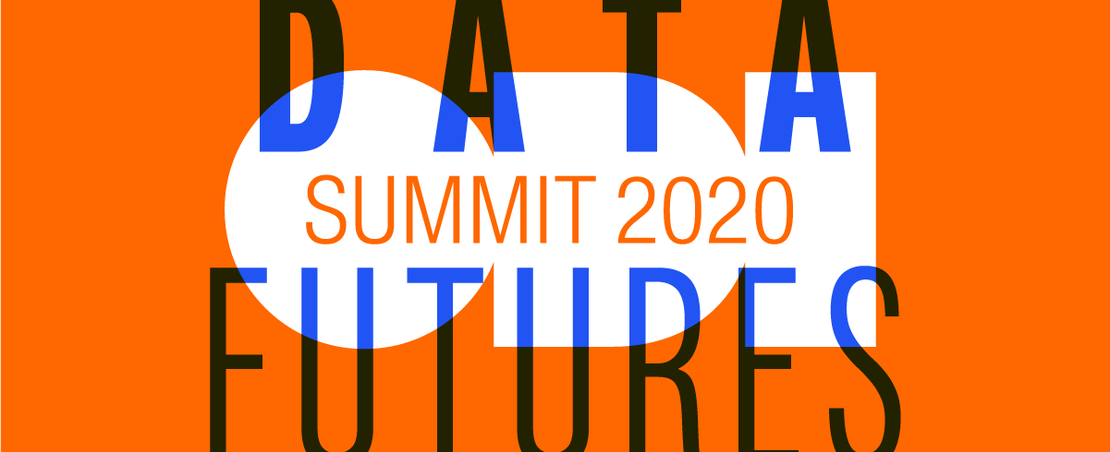
This year, we took on the challenge of hosting our annual summit online.
Over 1,000 delegates from 72 countries joined us for the ODI Summit 2020: Data | Futures. We heard thought-provoking talks from amazing speakers (including our keynotes John Whittingdale, Elizabeth Denham and Safiya Umoja Noble), participated in vital conversations about shaping an ideal data future, and launched interactive art from our Data as Culture artists.
In light of recent global events, discussions around harnessing the power of data are more critical than ever.
So, as calm descends on ODI HQ, Managing Director Louise Burke looks back at ODI Summit 2020.
Sessions, speeches, talks and more
This year’s summit saw nine hours of brilliant talks, panels, roundtables, chats, films and booths. Our speakers and delegates had plenty of insightful observations, and some even better metaphors – we were left wondering whether data is sand, glue or manure; and our own Jeni Tennison said that, when it comes to data, ‘we are blind people feeling an elephant’ because ‘if we never touch the trunk, we won’t know it’s there’.
Our three keynote speeches tackled a range of topics, and sparked important conversations about shaping the future:
- Minister of State for Media and Data John Whittingdale discussed the National Data Strategy, telling us that the strategy is designed to drive the economic recovery from the pandemic, and that everyone has a role to play in shaping it.
- Elizabeth Denham, the UK Information Commissioner, reflected on the question ‘Who decides how we can use data?’, highlighting the role data has played – and will continue to play – in driving innovation; and the essential role trust plays in developing an approach to safe data sharing and use.
- Safiya Umoja Noble, Co-Founder of the UCLA Centre for Critical Internet Inquiry, revisited her research from her book ‘Algorithms of Oppression’. Amongst a number of thought-provoking reflections, she highlighted that the most vulnerable must be centred in approaches to the future of data and technology; and that the complexity of humanity cannot wholly be captured by code.
But of course, it wasn’t only speeches and panels that made up the event. We also saw interactive works from our Data as Culture art programme, and highlighted the fantastic pieces authored by our ODI Writer’s Fund – Black History Month 2020 writers. And, we can’t forget Datopolis – the open data board game went virtual, with a session showing the game in action.
Recurring themes
We built our programme to cover nine different themes, from health data, to data for policymaking and data in a regional and an international context.
But beyond these themes, brilliant conversations were had around our six manifesto points: infrastructure, capability, innovation, equity, ethics and engagement.
- Infrastructure
- A lot of discussion centred around the data infrastructure we need to build to create improvements across all areas of our society and culture – including strengthening and developing a global data infrastructure, especially in light of the Covid-19 pandemic. As our Chairman Nigel Shadbolt said, we need to invest in ‘laying down the equivalent of the road and power network for data’.
- Capability
- Whether it was global data literacy, using data literacy to help combat misinformation, teaching data literacy in schools or the importance of having data literate leaders, one thing was clear – if we want a data future that works for everyone, everyone must have access to data skills.
- Innovation
- This was a prominent theme throughout the day, from discussions on how to alleviate the blockers to innovation, to how data has driven innovation in light of the Covid-19 pandemic. As Elizabeth Denham said with a quote attributed to Sun-Tzu, ‘In the midst of chaos, there is always opportunity.’
- Equity
- Conversations about equity and inclusion took centre stage throughout the day – including how to build inclusion into the design of data projects, how bias not only exists within data but also within technologies, and the current inequalities that exist in our data infrastructure on both a local and global level.
- Ethics
- Data ethics was the topic of much discussion. For example, DoxBox trustbot demonstrated that the technology we use everyday is not neutral – a theme that also came up in Safiya Noble’s keynote – and we heard how organisations and whole countries are transforming their approaches to data ethics.
- Engagement
- We want a data future that works for everyone, and this view was widely held by both speakers and delegates. For example, in his keynote, John Whittingdale urged us all to take part in the National Data Strategy consultation.
Data about children’s lives during the pandemic
Throughout the day, we discussed the value that can come when you combine datasets to produce real insights. Conversation also turned to who is falling through the net in data collection and intervention.
These themes were most prominent in discussions around our new report Data about children’s lives during the pandemic, which looks at the effects the pandemic has had on children, as well as on parents and teachers.
You can read more on the report here.
Going global
Whilst it was certainly a challenge to adapt the summit to a virtual experience, it meant that we can facilitate and take part in conversations with people from across the world. Our speakers were drawn from five continents, and represented a vast array of expertise.
Our audience was a global one, too. We were joined by over 1,000 delegates from 72 countries across the globe. For those of you who joined us, we want to give a massive thank you – it was you who made the event brilliant.
To keep up to date with more from us at the ODI, become a Member or subscribe to The Week in Data. To watch back our recorded ODI Summit 2020 sessions and panels, visit our YouTube page.